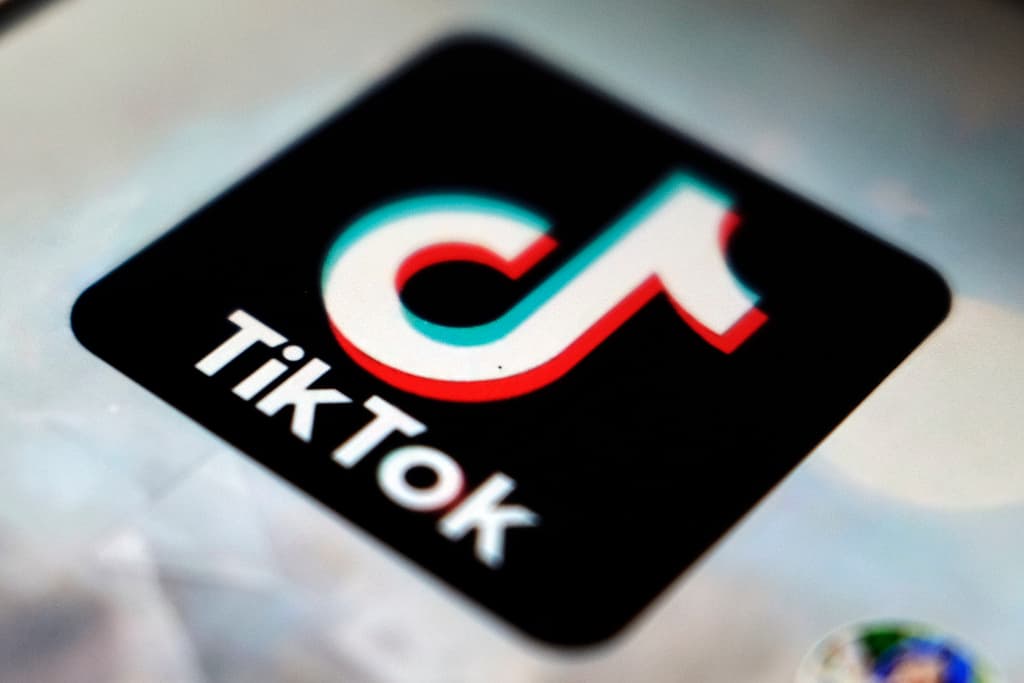TikTok, Biden Administration Clash in Court Over Law That Could Ban App as Soon as January
The clash between national security and the First Amendment is widely expected to land at the Supreme Court.

TikTok’s fate is up in the air after oral arguments before a federal appeals court Monday, ahead of the enforcement of a law that would ban the app in America if the company doesn’t divest from its Communist Chinese parent company, ByteDance.
The arguments marked an important milestone in a clash between national security and the First Amendment that is widely expected to ultimately land at the Supreme Court.
TikTok argues that a law passed by Congress and signed by President Biden earlier this year — the “Protecting Americans from Foreign Adversary Controlled Applications Act” — unconstitutionally targets the popular social media platform and, in doing so, silences its tens of millions of American users. The law, banning the app unless it’s sold to another company, would force the shutdown of the platform by January 19, 2025, TikTok says.
The federal government insists that it is simply targeting the ownership of the app — and national security threats surrounding it — and not free expression, and says nothing is preventing TikTok users from viewing and uploading the same content on other social media platforms.
“The law before this court is unprecedented, and its effect would be staggering,” an attorney for TikTok, Andrew Pincus, argued on Monday before a three-judge panel at the Court of Appeals for the District of Columbia. “For the first time in history, Congress has expressly targeted a specific U.S. speaker, banning its speech and the speech of 170 million Americans.”
The three-judge panel consisted of Chief Judge Sri Srinivasan, an appointee of President Obama, Judge Neomi Rao, appointed by President Trump, and Judge Douglas Ginsburg, an appointee of President Reagan.
The panel peppered TikTok’s lawyer with questions about the extent of foreign influence connected to the app, as well as the significance of Congress legislating the ban rather than an administrative agency.
“I know Congress doesn’t legislate all the time, but here they did. They actually passed a law, and many of your arguments want us to treat them like they’re an agency,” one judge asked TikTok’s attorney. “It’s a very strange framework for thinking about our first branch of government.”
“I think it’s an unusual law, though,” Mr. Pincus responded. “It’s a pretty unusual law, an unprecedented law, as far as we know, that specifically targets one speaker.”
The arguments echoed those in TikTok’s legal filings, which say Congress has “taken the unprecedented step of expressly singling out and banning TikTok,” affecting 170 million American users. “For the first time in history, Congress has enacted a law that subjects a single, named speech platform to a permanent, nationwide ban, and bars every American from participating in a unique online community with more than 1 billion people worldwide,” TikTok’s petition to the court read.
TikTok argues that even though the law allows it the option to divest from its ownership, such divestment “is simply not possible: not commercially, not technologically, not legally,” and especially within the timeline required by the law.
In addition to TikTok’s legal challenge, a group of TikTok creators is arguing that regardless of the company’s interests, the ban “directly implicates the First Amendment rights of American speakers to speak, associate and listen to free expression in this country.” In oral arguments Monday, an attorney for the TikTok users said that allowing the ban would be equivalent to preventing American writers from publishing material in Al Jazeera, or musicians from posting on Swedish-owned Spotify, or filmmakers from airing their films on BBC.
The justice department’s lawyer, Daniel Tenny, said the government had two primary motivations for requiring the app to divest from its Chinese ownership — the first being that the social media platform gathers enormous amounts of information about both its users and content creators.
“The problem is that that same data is extremely valuable to a foreign adversary trying to compromise the security of the United States. Knowing what Americans’ patterns are, who their contacts are, where they go, who they interact with, what sorts of content interests them, what sort of content turns them off would be quite valuable to a foreign adversary,” Mr. Tenny argued.
The second concern, he said, is that a foreign company “controls” the content recommendations on the app.
“The recommendation engine is maintained, developed, written by ByteDance, rather than by Tiktok U.S., and that is what’s being targeted,” he said.
His arguments follow those in the federal government’s brief, which points to years of concerns by both Congress and the executive branch about national security threats from TikTok’s ownership by “Chinese company ByteDance.”
“The Chinese government, which views the United States as a geopolitical rival, has broad authority and practical ability to require Chinese companies to secretly assist China’s intelligence, law enforcement, and national-security efforts,” the government’s brief notes, adding that TikTok’s broad use in America, under its current ownership, presents “a national-security threat of immense depth and scale.”
The federal government is concerned that China could “stockpile and strategically deploy” the personal information of some 170 million users such as their exact locations, private messages, and viewing habits. The federal government is also concerned that the Chinese government could “covertly control the algorithm — and thus secretly shape the content that American users receive — for its own malign purposes.”

